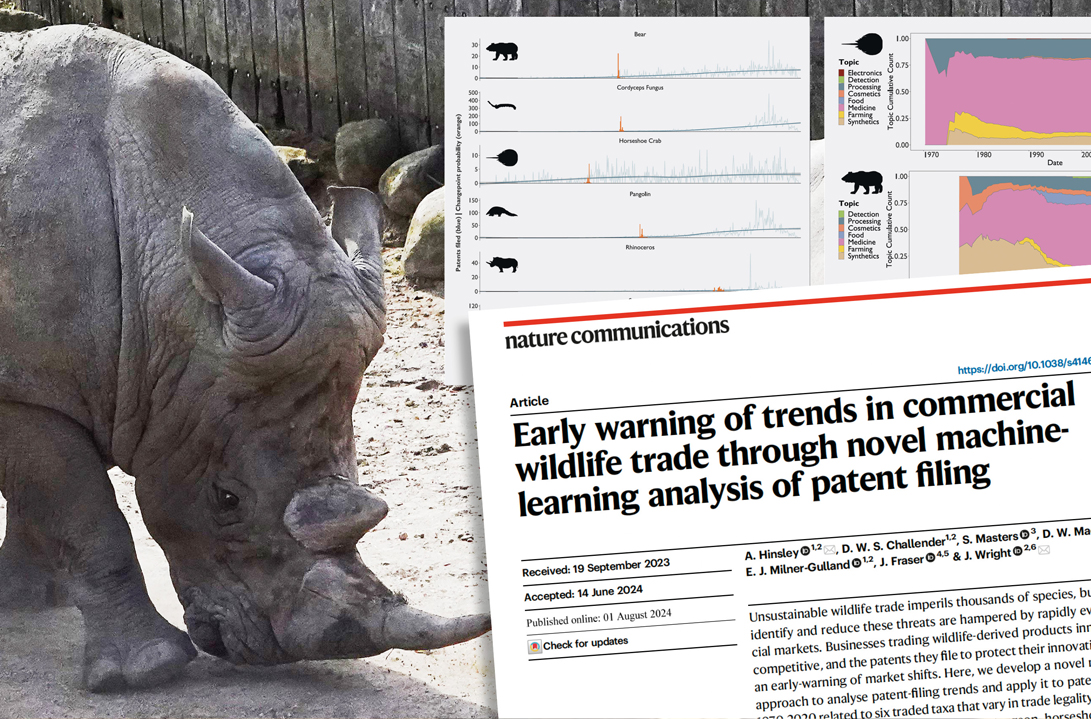Examining trends in wildlife trade through a novel machine-learning analysis of patent filing
August 07, 2024A new paper by WildCRU’s Amy Hinsley analyses 50 years of commercial wildlife-related patents related to rhinos, pangolins, horseshoe crabs, sturgeons, bears and caterpillar fungus filed from 1970 to 2020.

Using a novel machine learning approach, the authors found over 27,000 patents related to the study species ranging from medicinal and food uses to clothing. Some of the more unusual patents included medicated trousers containing pangolins scales, rhino horn snuff and sturgeon leather boots.
Findings show that businesses continue patenting even after trade bans are implemented – either because they do not know about regulations, or because they have confidence that regulations will change, and legal markets will re-open in the future. This demonstrates how patents can reveal how wildlife-related businesses predict, adapt to, and create market shifts, with the authors recommending that patent scans should be done regularly to identify emerging products, or new sectors planning to commercialise threatened and or illegal species.
The paper can be accessed here: https://www.nature.com/articles/s41467-024-49688-x